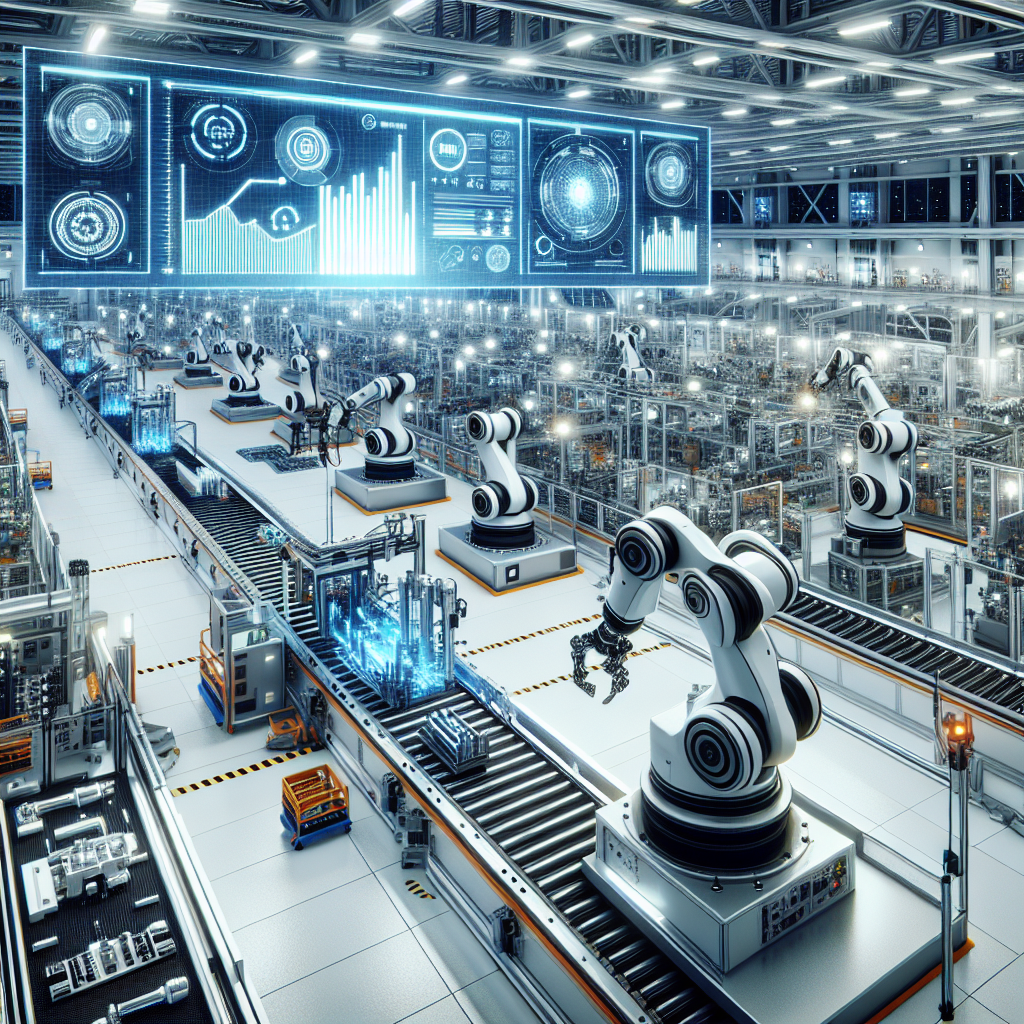The Rise of AI-powered Factories in Manufacturing
In recent years, there has been a significant shift in the manufacturing industry towards the adoption of artificial intelligence (AI) technologies in factories. This trend is driven by the potential for AI to revolutionize the way that products are designed, produced, and delivered to customers. AI-powered factories are able to operate more efficiently, produce higher quality products, and adapt quickly to changing market demands.
One of the key benefits of AI in manufacturing is the ability to optimize production processes. AI algorithms can analyze vast amounts of data in real time to identify inefficiencies and opportunities for improvement. For example, AI-powered machines can adjust their settings on the fly based on sensor data to ensure that products are produced with the highest level of quality. This level of automation leads to increased productivity and reduced waste, ultimately resulting in cost savings for manufacturers.
Additionally, AI can be used to predict maintenance needs before they occur, reducing downtime and extending the lifespan of equipment. By analyzing historical data and sensor readings, AI algorithms can identify patterns that indicate when a machine is likely to fail. This allows manufacturers to schedule maintenance proactively, rather than reactively, resulting in improved reliability and uptime.
Another key benefit of AI in manufacturing is the ability to customize products at scale. Traditionally, mass production has focused on producing large quantities of identical products. However, with advances in AI and robotics, manufacturers can now produce customized products on a large scale. AI algorithms can analyze customer data to identify trends and preferences, allowing manufacturers to tailor products to individual customer needs. This level of personalization can lead to increased customer satisfaction and loyalty.
AI-powered factories are also able to adapt quickly to changing market demands. In today’s fast-paced business environment, manufacturers need to be able to respond to shifts in consumer preferences and market trends. AI algorithms can analyze market data in real time to identify emerging trends and adjust production schedules accordingly. This level of agility allows manufacturers to stay ahead of the competition and capitalize on new opportunities as they arise.
Despite the many benefits of AI in manufacturing, there are also challenges that need to be addressed. One of the main concerns is the potential impact on jobs. As AI technologies become more prevalent in factories, there is a fear that they will replace human workers. However, many experts believe that AI will actually create new job opportunities in areas such as data analysis, programming, and maintenance. By upskilling workers and providing training in these areas, manufacturers can ensure that their workforce remains relevant in the age of AI.
Another challenge is the need for data security and privacy. AI algorithms rely on vast amounts of data to operate effectively, including sensitive information such as customer preferences and production schedules. Manufacturers need to implement robust cybersecurity measures to protect this data from hackers and other threats. Additionally, they need to be transparent with customers about how their data is being used and ensure that it is stored securely.
In conclusion, the rise of AI-powered factories in manufacturing represents a significant opportunity for manufacturers to improve efficiency, quality, and agility. By leveraging AI technologies, manufacturers can optimize production processes, predict maintenance needs, customize products at scale, and adapt quickly to changing market demands. While there are challenges that need to be addressed, the benefits of AI in manufacturing far outweigh the risks. As AI continues to advance, we can expect to see even greater innovation and transformation in the manufacturing industry.
FAQs:
Q: Will AI-powered factories replace human workers?
A: While there is a fear that AI technologies will replace human workers in factories, many experts believe that AI will actually create new job opportunities in areas such as data analysis, programming, and maintenance. By upskilling workers and providing training in these areas, manufacturers can ensure that their workforce remains relevant in the age of AI.
Q: What are the benefits of AI in manufacturing?
A: AI in manufacturing can optimize production processes, predict maintenance needs, customize products at scale, and adapt quickly to changing market demands. This leads to increased efficiency, higher quality products, and improved agility in responding to market trends.
Q: How can manufacturers ensure data security and privacy when using AI?
A: Manufacturers need to implement robust cybersecurity measures to protect sensitive data from hackers and other threats. They also need to be transparent with customers about how their data is being used and ensure that it is stored securely.
Q: What are some of the challenges of implementing AI in manufacturing?
A: Some of the challenges of implementing AI in manufacturing include concerns about the potential impact on jobs, as well as the need for data security and privacy. However, the benefits of AI in manufacturing far outweigh the risks, and manufacturers can address these challenges through upskilling workers and implementing robust cybersecurity measures.

